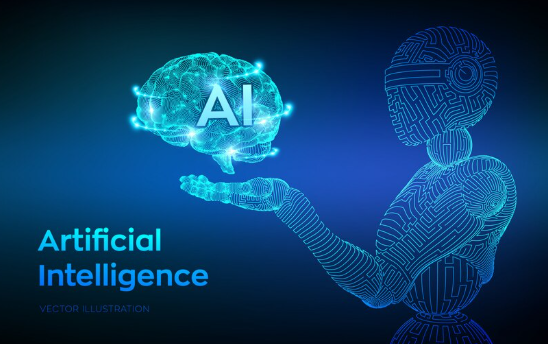Artificial intelligence (AI) has become one of the most important topics in the technology sector in recent years.
It encompasses a variety of technologies and methods that enable machines to perform human-like intelligence.
Table of contents

These include machine learning, natural language processing and neural networks.
These technologies have the potential to fundamentally change the way companies operate by automating processes, analysing data and creating personalized experiences. The rapid development of AI technologies is having an impact not only on industry, but also on people's daily lives. The application of artificial intelligence spans numerous areas, including healthcare, finance, the automotive industry and especially marketing. An interesting example of this is the application of Artificial intelligence in Kaiserslauternwhere innovative solutions are driven forward in industry and research.
In the field of marketing, AI enables a deeper analysis of customer data, the development of more targeted campaigns and the automation of processes. By using AI, companies can not only increase their efficiency, but also improve customer loyalty and satisfaction. In this context, it is crucial to understand the various facets of artificial intelligence and analyze its impact on marketing.
Key Takeaways
- Artificial intelligence (AI) is an important part of modern marketing and offers a wide range of opportunities for optimizing processes and customer interactions.
- The advantages of AI in marketing lie in the personalized customer approach, the automation of tasks and the analysis of large amounts of data to derive insights.
- Examples of AI applications in marketing include chatbots for customer communication, personalized recommendation systems and the automated creation of advertising materials.
- Challenges in the implementation of AI in marketing include the lack of qualified specialists, high costs and the need for a clear strategy.
- Data protection and ethics play an important role in connection with AI in marketing, as the use of customer data and automated decision-making raises ethical questions.
Artificial intelligence in marketing
Artificial intelligence has taken on a transformative role in marketing. Companies are using AI-powered tools to process large amounts of data and gain valuable insights into their customers' behavior and preferences. These technologies enable marketers to carry out more precise target group analyses and create personalized content tailored to the individual needs of consumers. In market research, too Artificial intelligence in market research are playing an increasingly important role in data evaluation and decision-making.
By using algorithms, companies can identify trends and make predictions about future purchasing decisions. Another important aspect of AI in marketing is the automation of campaigns. With the help of AI-supported platforms, companies can make their marketing activities more efficient by automating routine tasks.
This includes the planning and execution of email campaigns, the management of social media content and the analysis of campaign results. Automation allows marketers to focus on strategic tasks while AI takes over the operational aspects.
Advantages of artificial intelligence in marketing

The benefits of artificial intelligence in marketing are manifold and range from increased efficiency to improved customer experiences. One key advantage is the ability to analyze data in real time. Companies can collect and analyze large amounts of data from various sources to make informed decisions.
These real-time analyses enable marketers to react quickly to changes in the market or customer behavior and adapt their strategies accordingly. Another significant advantage is the personalization of marketing content. By using AI, companies can create tailored offers and recommendations based on individual customer preferences and behavior. This not only leads to higher customer satisfaction, but also to an increased conversion rate. Studies have shown that personalized marketing measures are significantly more effective than generic approaches, as they create a deeper connection between brand and consumer.
Application examples of artificial intelligence in marketing
| Application example | Artificial intelligence in marketing |
|---|---|
| Customer segmentation | With the help of AI, customers can be divided into different segments based on their behavior and preferences in order to carry out targeted marketing campaigns. |
| Personalized advertising | AI enables the creation and delivery of personalized advertisements based on the individual behavior and interests of customers. |
| Chatbots | Chatbots powered by AI can answer customer queries in real time and improve customer service. |
| Forecast and analysis | AI-based analyses can help to predict future trends and customer behavior in order to adapt marketing strategies accordingly. |
The use of artificial intelligence in marketing is already widespread and can be seen in numerous concrete examples. One prominent example is the use of chatbots in customer service. Companies such as Sephora and H&M use AI-supported chatbots to answer customer queries around the clock and provide personalized product recommendations.
These chatbots are able to understand natural language and respond to specific questions, which significantly improves the customer experience. Another example is the use of predictive analytics to forecast purchasing behavior. Retailers such as Amazon use AI algorithms to predict the future purchasing behavior of their customers and make appropriate recommendations.
This technology analyzes historical data and identifies patterns that make it possible to develop targeted marketing campaigns. Such approaches have not only increased the efficiency of marketing strategies, but also significantly boosted sales.
Challenges in the implementation of artificial intelligence in marketing
Despite the numerous advantages, the implementation of artificial intelligence in marketing also brings challenges. One of the biggest hurdles is access to high-quality data. In order to develop effective AI models, companies need extensive and precise data sets.
However, this data is often fragmented or incomplete, which makes it difficult to develop reliable algorithms. Companies therefore need to invest in robust data management systems to ensure they have the necessary information. Another problem is the lack of skilled workers with the necessary skills to implement and manage AI technologies.
The demand for data scientists and AI experts is constantly growing, while the supply of qualified specialists is often insufficient. This can make it difficult for companies to successfully implement their AI initiatives or develop innovative solutions. It is therefore crucial for companies to invest in training programs and promote a culture of continuous professional development.
Data protection and ethics in connection with artificial intelligence in marketing

The importance of data protection
The collection and processing of personal data is a central component of many AI applications in marketing. Companies must ensure that they comply with the applicable data protection laws, such as the General Data Protection Regulation (GDPR) in Europe.
Transparency and consent
These regulations require transparency in data collection and the obtaining of user consent. In addition, companies must take ethical considerations into account when using AI technologies.
Responsible action
The risk of discrimination through algorithmic decisions is real; for example, biased data can lead to certain groups being disadvantaged. It is therefore essential that companies handle their data responsibly and ensure that their AI models are fair and transparent. Creating an ethical framework for the use of AI in marketing is crucial for consumer trust.
The future of artificial intelligence in marketing
The future of artificial intelligence in marketing promises exciting developments and innovations. With advances in machine learning and natural language processing, AI systems are becoming increasingly powerful and versatile. In the coming years, we could see even greater integration of AI into all aspects of marketing - from product development to pricing and customer loyalty.
One promising trend is the increasing use of AI to produce creative content. Algorithms are already able to generate text or create visual content that can be used for marketing campaigns. This could revolutionize the creative process and offer marketers new ways to address their target groups.
In addition, AI-supported analyses are expected to enable even more precise predictions about market trends, which will help companies to react more proactively to changes.
Conclusion: The importance of artificial intelligence for marketing
The importance of artificial intelligence for marketing cannot be overestimated. It not only offers companies the opportunity to increase their efficiency and reduce costs, but also to gain deeper insights into their customers' behavior. By using AI, companies can create personalized experiences that increase both customer satisfaction and loyalty.
Nevertheless, companies must also consider the challenges associated with the implementation of AI. Responsible data handling and ethical considerations are crucial to the long-term success of these technologies in the marketing sector. In a world where technology is evolving rapidly, artificial intelligence will undoubtedly play a key role in how companies shape their strategies and position themselves in the market.
Artificial intelligence is undoubtedly the future of marketing. An article from Softsparks.de discusses the importance of SEO with AI for Google and AI search engines. This technology enables companies to optimize their online presence and improve their visibility in search engines. In addition, the automation of content creation using low-code platforms is also presented as an effective marketing strategy. The importance of professional videos for companies to attract the attention of their target group is also emphasized.
FAQs
What is artificial intelligence in marketing?
Artificial intelligence in marketing refers to the use of technologies that enable machines to imitate human-like intelligence in order to optimize marketing activities. This includes, for example, the analysis of customer data, the personalization of content and the automation of processes.
What advantages does artificial intelligence offer in marketing?
The use of artificial intelligence in marketing can lead to a more efficient use of resources, an improved customer approach, a higher conversion rate and better analysis of marketing campaigns. Artificial intelligence also enables a personalized customer approach in real time.
What areas of application are there for artificial intelligence in marketing?
Artificial intelligence is used in marketing for various purposes, including the analysis of customer data, the automation of marketing campaigns, the personalization of content, the prediction of customer behaviour and the optimization of search engine marketing.
What are the challenges of using artificial intelligence in marketing?
Challenges in the use of artificial intelligence in marketing include data protection concerns, the need for high-quality data, the integration of artificial intelligence into existing systems and ensuring transparency and trust towards customers.

Pingback: Effective online marketing strategies for more success